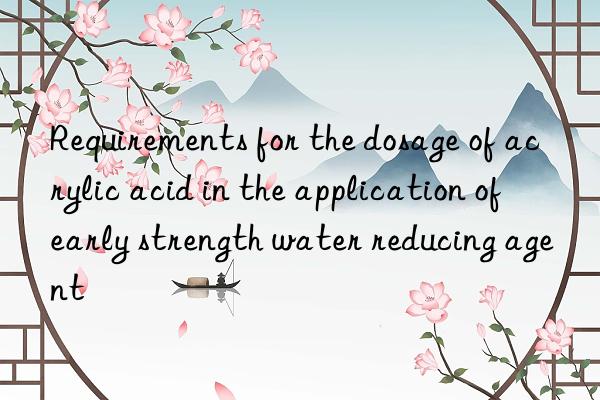
All products will tend to be single in the continuous market demand, and buyers will seek benefits and sellers will suffer and enmity. The trend towards simplification is precisely the necessity of the market, which means that through long-term trial and error, the product has gradually found the template that is most suitable for a broad audience of consumers. Have the necessary ability to identify the quality of the product for future purchases. Sellers can no longer obtain the profits generated by the trial and error of Taobao buyers through the so-called "diversification".
Even if a product is simple, there will be areas for improvement depending on the region. Water-reducing mother liquor also conforms to this characteristic. The production processes of national early-strength and water-reducing mother liquors have their own advantages. Even if different metal catalysts are used, a mother liquor with a similarity of 95% or even 96% can be obtained. At present, depending on the situation of additives, the difference in raw materials in different regions can be completely made up through cost or added ingredients, which will not cause a big difference in user applications. Even if the industry leader can provide diversified mother liquors, they do not care about the secret recipe of one mother liquor in one region.
This article is only to introduce whether there are other adjustment methods that are more suitable for the needs of various regions, and cannot find out which ones are better or worse.
There are many ways to change the mother liquor process, such as temperature, oxidizing agent, chain transfer agent, mixing and adding time, acid to ether ratio, acid feeding method, and the concentration of raw materials at the bottom of the reaction tank. At least it is not my personal experience that the greater harm is the acid to ether ratio and the acid feeding method.
The acid to ether ratio is converted into the amount of the substance in many references and then adjusted. This is a standard operation in the early stage of product research. Now that the acid to ether ratio has a more effective ratio, I prefer to change the ratio directly and clearly. It is the ratio in 1 ton (1 kg) of mother liquor. Acrylic: monomer = 50:410 is a common ratio. Increasing the usage of acrylic acid can increase the water reduction rate of the mother liquor, but excessive usage of acrylic acid will cause the slump retention properties of the mother liquor to be reduced. In market sales, in order to reduce the market price and therefore take into account the reduction of production costs. On the basis of acrylic acid: monomer = 50:410, increasing the amount of acrylate used will increase the solid content of the mother liquor, thereby increasing the cost. A more rigid operation is to directly reduce the amount of competition rate usage, and nothing else will change. For example, change acrylic:monomer=50:410 to acrylic:monomer=50:340 so that acrylic:monomer=50:390. This kind of operation is favored by the majority of manufacturers. The profit will not change if the buyer reduces the price, and the seller will be happy if the water reduction rate is similar. When the early strength mother liquor was first released, the calibrated solid content was usually 50%. Due to continuous competition and price reduction, the solid content of the mother liquor in the market today is still 50%. In fact, most of the mother liquor is only 38.5% or even lower.
In addition, when I was doing experiments, I also found that this interesting method can change the characteristics of the mother liquor.
The only difference between the two production methods is to reflect the previous addition of 8% A solution. There is no difference in the water reduction rate of the mother liquor produced by these two processing techniques. The clean pulp inspection is also similar. However, the difference in concrete compatibility is relatively large. The concrete slurry compatible with the mother liquor pre-added with 8% A material becomes lighter and does not bleed, but has poor adhesion. The surface of the concrete has no smoothness like toast. Subsequently, increasing the amount of pre-added acrylate can increase the water reduction rate, but the negative effect will be greater. At least it’s not suitable for my local raw materials. I also discovered during the experiment that another metal catalyst processing technology is more integrated with the actual operation method of pre-adding material A.
In the current mother liquor production process, the space that can be modified is available but not large. Through optimization, local concrete raw materials can be better integrated. Exploring in this direction is the advantage of admixture manufacturers across the country. Foreign manufacturers will not transfer technology to each commercial concrete mixing station. Friends who are thinking about reducing costs can try this to find some advantages directly in the subtle differences. </p

 微信扫一扫打赏
微信扫一扫打赏

